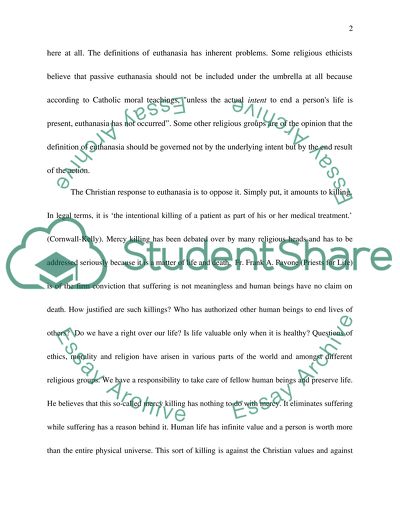Cite this document
(Different Christian Views Surrounding Euthanasia Essay, n.d.)
Different Christian Views Surrounding Euthanasia Essay. Retrieved from https://studentshare.org/social-science/1535899-different-christian-views-surrounding-euthanasia
Different Christian Views Surrounding Euthanasia Essay. Retrieved from https://studentshare.org/social-science/1535899-different-christian-views-surrounding-euthanasia
(Different Christian Views Surrounding Euthanasia Essay)
Different Christian Views Surrounding Euthanasia Essay. https://studentshare.org/social-science/1535899-different-christian-views-surrounding-euthanasia.
Different Christian Views Surrounding Euthanasia Essay. https://studentshare.org/social-science/1535899-different-christian-views-surrounding-euthanasia.
“Different Christian Views Surrounding Euthanasia Essay”, n.d. https://studentshare.org/social-science/1535899-different-christian-views-surrounding-euthanasia.


